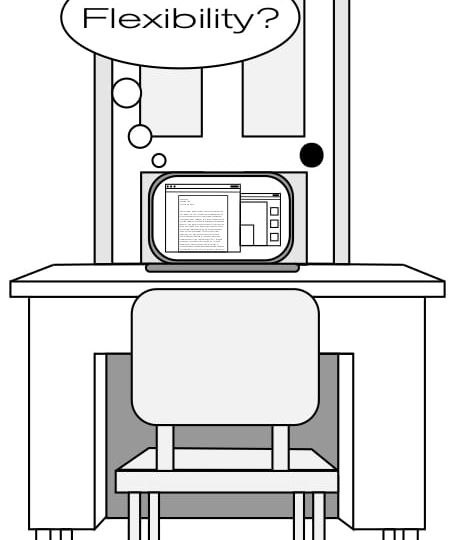
Currently, I’m taking Writing 107, a class which requires students to visit the Writing Desk once per week. Each student chooses a time that works for them and pays weekly visits to their assigned tutor. One session usually lasts around 45 minutes, and in WRI 107, it is mandatory that students visit their tutors at least nine times per semester to fulfill the credit.
“I think giving students an option to use an appointment with the professor is an alternative to fulfill the tutoring requirement would give students more flexibility” – Khan Cao Huy Gia ’22
I find the tutoring sessions helpful to an extent. My tutor and I usually work on correcting grammar and organizing drafts or ideas for an upcoming essay. I find it useful to have an essay ready when going to the tutoring session. To begin with, my tutor asks me to read the essay out loud. As I read my essay out loud, I realize the grammatical errors I’ve made in the paper. I’ve adopted this method of proofreading and use it for papers from other classes. Along with fixing grammatical errors, my tutor gives me feedback on parts of the paper she has trouble understanding, giving me a clue of where I need to elaborate. The grade I received based on word choice and grammar use in my papers also increases thanks to my sessions with my tutor.
Having a reserved and specialized tutor is also a plus. When seeking help with essays, students are usually mindful of the different specialties of different tutors. Some tutors specialize in literary analysis papers, some specialize in science research. At the same time, some tutors are keener on grammar mistakes than others, and some are more focused on the structure or idea of the essay. Having a readily accessible and specialized tutoring session simplifies the process for students. Plus, since students will be seeing the same tutor every time, their tutor gets to know them and their writing style more than any other tutor. I think this helps with students’ writing development in the long run. With the tutor knowing their student’s strengths and weaknesses, they know what to work on and what not to worry about, making the session more efficient.
Although I find the tutoring session helpful, the mandatory aspect is not flexible. If something comes up during the time of the tutoring session, I am responsible for making another apointment with my tutor to fulfill the nine-session requirement. Although students can afford to miss one or two sessions, rescheduling a makeup session is not easy. I think it would be more efficient if the tutoring sessions were optional.
Making the sessions mandatory also makes it inconvenient for students who prefer to work on homework by themselves. Some students would prefer consulting their professors directly with questions because they know the material better. Although tutors are very helpful with identifying grammatical errors and idea organization, they are not familiar with the various course materials. It is crucial that students go over the rubric and the criteria very carefully with the tutor before they start developing the essay. The student also needs to explain the general idea of the book they are reading, as the tutor does not necessarily know what the book is about. One time, my friend and I produced ineffective essays due to unclear communication about the criteria of that specific assignment. I think giving students an option to use an appointment with the professor as an alternative to fulfill the tutoring requirement would give students more flexibility.
Overall, I believe tutoring sessions do a good job of providing the students with a second perspective on their assignments. However, I believe tutoring could be improved by giving student more flexibility or having the tutors beter understand the professors’ criteria for a specific assignment.
Khang Cao Huy Gia ’22 (caohuy1@stolaf.edu) is from Ho Chi Minh, Vietnam. His major is undecided.

